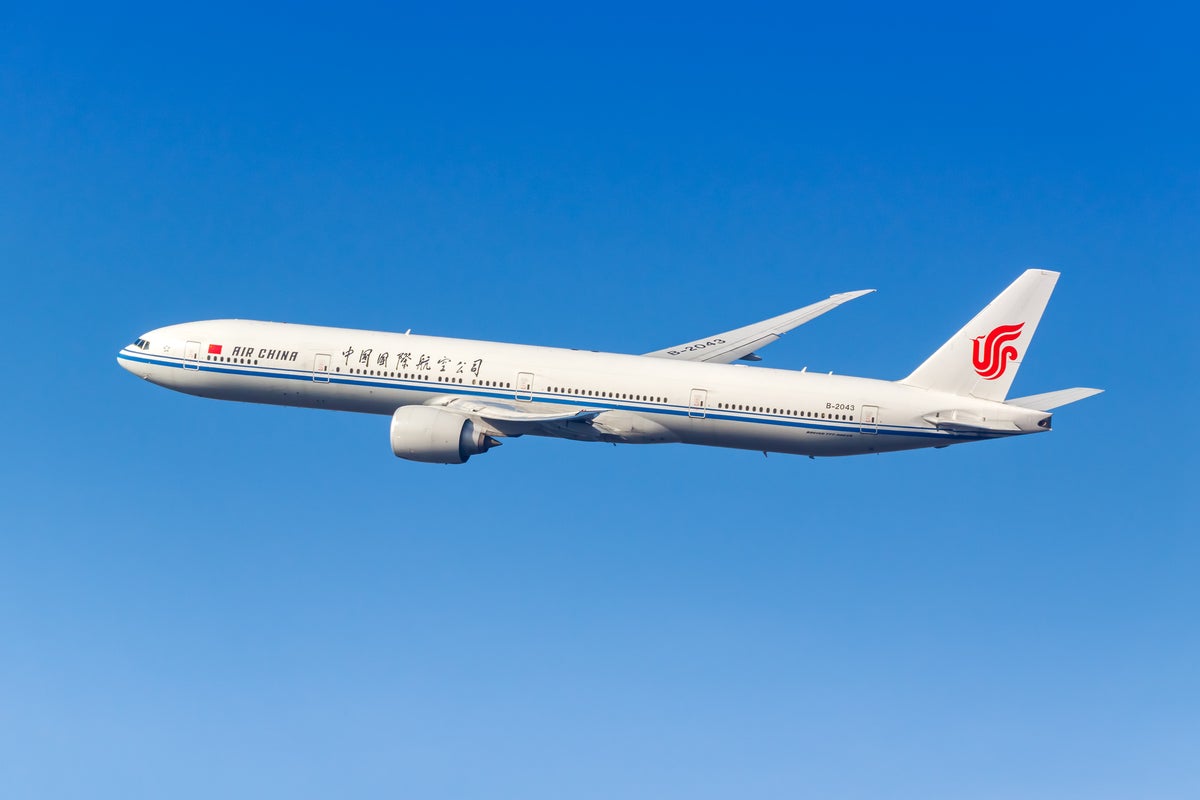
China’s largest state-owned airlines are challenging a US proposal that would prohibit them from utilising Russian airspace for flights to and from the United States.
The move comes as Washington argues that such routes afford Chinese carriers an unfair cost advantage over their American counterparts, who are barred from traversing Russian territory.
Moscow closed its airspace to US and most European airlines in 2022, a retaliatory measure following Western sanctions imposed after Russia’s invasion of Ukraine.
This restriction has left US carriers with longer, more expensive routes, prompting the recent US Department of Transport proposal.
Among the six Chinese airlines that have filed complaints against the proposed order are Air China, China Eastern, and China Southern.
China Eastern, in its submission this week, contended that the ban would “harm the public interest” and “inconvenience travellers” from both nations.
It further warned that increased flight times would lead to higher operational costs and elevated airfares, thereby increasing the burden on all passengers.
China Southern cautioned that a prohibition on Russian airspace would negatively impact thousands of travellers. Air China estimated that at least 4,400 passengers could be affected if the ban were implemented during the busy Thanksgiving and Christmas periods.
Last week, China’s foreign ministry spokesperson, Guo Jiakun, also criticised the proposed ban, asserting that the measure would be “punishing” for passengers globally.
David Yu, an aviation industry expert at New York University Shanghai, said that U.S. carriers’ inability to fly over Russian airspace has increased flight paths for some U.S.-China routes by roughly two to three hours. Longer journeys require more fuel and pressure U.S. carriers’ profitability.
“The U.S.-China route historically has been a money-maker for airlines on both sides,” Yu said. “From the Chinese carriers’ perspective, if you can go through Russia, your costs go down.”
Despite that, Chinese carriers have struggled with losses, especially since the COVID-19 pandemic.
The U.S. Department of Transportation said in its proposed order that Chinese carriers’ ability to cross Russian airspace has caused “competitive imbalances” between American and Chinese airlines.
“Being able to use the most efficient route provides a competitive advantage because it usually results in the shortest flight time duration, thereby offering a more appealing option to travelers,” the department said last week.
The U.S Department of Transportation said it would consider public comments before finalising the plan.
European airlines including Air France-KLM have also complained.
In a filing to the Department of Transportation, United Airlines urged that Hong Kong’s flagship carrier Cathay Pacific, which is not included in the list of Chinese airlines, also be subject to the ban.
